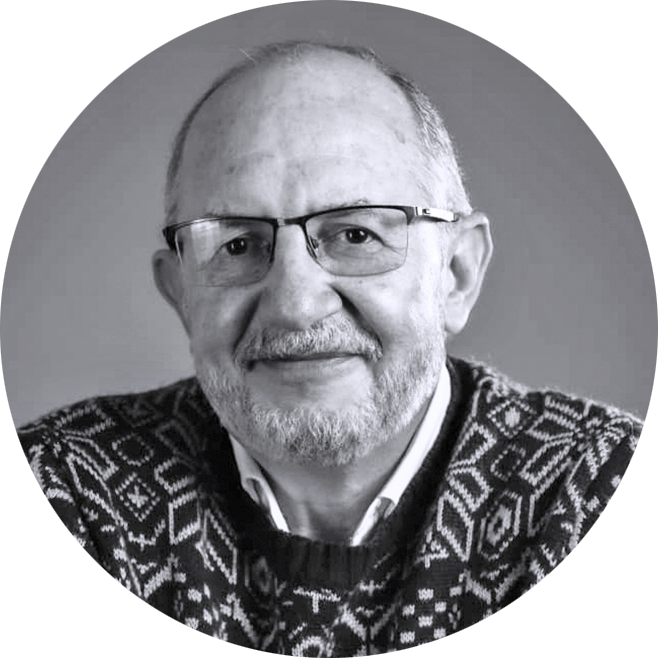
Alejandro Álvarez Gallego
Rector, Universidad Pedagógica Nacional
Column published – August 19, 2023

Governance and Peace
The country is currently experiencing a governance crisis, and peace, as a supreme good, is being used to deepen it.
Seven years ago, when the peace agreement with the FARC was signed, the State University System (Sistema Universitario Estatal – SUE) created the governance and peace panel to help solve the political tension that has being with us since then. This tension is replicated within our universities, and we urgently need to manage it appropriately, being important transformations necessary in the relations between the State, society and university.
From August 10 to 12 of this year, this panel met at the Industrial University of Santander (Universidad Industrial de Santander – UIS), with delegates from the Ministries of the Interior and Education, to analyze the coexistence problems present on our campuses. Each of the attending universities presented a diagnosis of situations that affect their own governance, and the strategies designed to mitigate them. We checked the arduous efforts made by our universities to confront multiple and serious situations that affect our students with effects such as the phenomenon of street vendors; parties and liquor and psychoactive substances consumption; violent expressions, which sometimes occur with and without justification, as well as gender-based violence and racism.
The conclusion at the governance and peace panel was that these situations cannot be faced in isolation; we need the State and society. To begin with, we call to end the stigmatization, which unfortunately still persists towards young people and towards our universities; to understand that they are phenomena affecting us as a society and that we do not cause them, rather they fall on us. That is why we must act in an articulate way to face them.
The Ministries that accepted the invitation to this meeting were sensitive to our concerns, so we hope that other State bodies will come together to make coordinated actions that allow us to act with a, agenda in terms of culture, sports, psychological care and socioeconomic and coexistence support, all around the program presented by the Ministry of Education called “Protective and Safety School” (Escuela Protectora y Segura). Segura”, designed for schools.
The government has taken a big step by adhering to the declaration “Global Alliance for Disaster Risk Reduction and Resilience in the Education Sector” (GADRRES) promoted for seven years by the Kingdom of Norway and Argentina. At the signing ceremony last November (2022), the government declared:
“What we want is for girls, boys and adolescents to be at the center of total peace, being builders of peace and for that to be achieved we have to guarantee them a protective environment; one where they are not recruited, where schools are not surrounded by mines, where armed actors do not penetrate; and in addition to that, build a space for dialogue. (…) May their voices be heard by those of us who make public policy.”
We propose the same for our university campuses. In addition to appropriately addressing the difficult socioeconomic and socioemotional conditions of our young people, we must move towards a new relationship between the State, society and the university, to guarantee not only the right to education, but also to peaceful coexistence in the campus and a decent life to display all their capabilities.
That is why we have insisted on the need for the government to put on the agendas of the negotiation tables that it carries out with the different armed actors, in search of what they have called Total Peace, the issue of young university students; They cannot continue recruiting them, nor using them as part of the chain of drug production, distribution and consumption. The Right to education is related to the right to peace and decent living conditions.
Another important meeting, which brings good omens, was held on August 15 within the context of the agenda of the Bogotá interuniversity panel, which was attended by the rectors of the public universities: Colegio Mayor de Cundinamarca, National, District and Pedagogical universities; and of the private ones: Andes and Javeriana, their welfare teams, the District Ombudsman Office (Personería Distrital) and the Government Secretariat. Problems and alternatives related to coexistence and welfare are also analyzed at this panel. On this case, the Director of the National Unit for Dialogue and Maintenance of Order (Unidad Nacional de Diálogo y de Mantenimiento del Orden -UNDMO), former ESMAD, Colonel Alba Patricia Lancheros attended this meeting. In addition to listening to our concerns about how public order in our universities was being managed by the police, the new structure that has been given to this Unit was presented. So, it seems that this is a fundamental reform about how the police is committed to maintain order, based on dialogue and human rights.
If all this is true, we are on the right path towards a full guarantee of the right to education. We have understood that governability is a condition for peace to be possible and for universities, as in the field of national politics, we must prioritize the right to peace that we all have over the political and economic interests of a few.
We hope that all this situation will lead us to the construction of a new institutional system, which must be materialized in the reform of Law 30, establishing dialogue and coordination between State institutions, as seen in the meetings that have been commented on here.